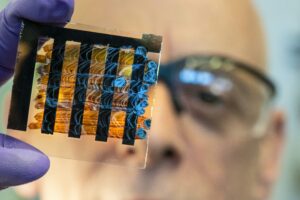
Sepsis, a severe infection leading to life-threatening organ dysfunction, remains a leading cause of mortality among children globally. In a groundbreaking development, researchers have successfully developed and validated artificial intelligence (AI) models capable of identifying children at high risk for sepsis within a critical 48-hour window, allowing for the administration of preemptive care. These models utilize routine electronic health record (EHR) data collected during the initial four hours of a child’s stay in the Emergency Department (ED), crucially before the onset of organ dysfunction.
The study, spearheaded by Dr. Elizabeth Alpern from Ann & Robert H. Lurie Children’s Hospital of Chicago, marks a pioneering effort to employ AI models in predicting pediatric sepsis using the newly established Phoenix Sepsis Criteria. The findings, published in JAMA Pediatrics, highlight the potential of AI in transforming pediatric emergency care.
AI-Driven Precision Medicine
Dr. Alpern, who also serves as the Division Head of Emergency Medicine at Lurie Children’s and a Professor of Pediatrics at Northwestern University Feinberg School of Medicine, emphasized the significance of these predictive models. “The predictive models we developed are a huge step toward precision medicine for sepsis in children,” she stated. “These models showed robust balance in identifying children in the ED who will later develop sepsis, without overidentifying those who are not at risk. This is very important because we want to avoid aggressive treatment for children who don’t need it.”
The study’s scope included five health systems within the Pediatric Emergency Care Applied Research Network (PECARN), providing access to a comprehensive dataset and a diverse patient population. Notably, the study excluded children already diagnosed with sepsis upon arrival or within the first hours of ED care, focusing instead on early prediction to facilitate timely and potentially lifesaving interventions.
Ensuring Accuracy and Avoiding Bias
Dr. Alpern and her team took meticulous steps to evaluate the models for potential biases. “We evaluated our models to ensure that there were no biases,” she explained. “Future research will need to combine EHR-based AI models with clinician judgment to make even better predictions.”
“Future research will need to combine EHR-based AI models with clinician judgment to make even better predictions.” — Dr. Elizabeth Alpern
This innovative project was supported by a grant from the National Institute of Child Health and Human Development (NICHD), underscoring the importance of funding in advancing pediatric healthcare research.
Implications for Pediatric Healthcare
Ann & Robert H. Lurie Children’s Hospital of Chicago, a nonprofit organization dedicated to providing exceptional pediatric care, plays a pivotal role in this research. As the only independent, research-driven children’s hospital in Illinois, Lurie Children’s is at the forefront of pediatric medical training and research. The institution’s commitment to improving child health is exemplified through its Stanley Manne Children’s Research Institute, which is dedicated to transforming pediatric medicine and ensuring healthier futures for children.
The implications of this study extend beyond immediate clinical applications. By integrating AI models with clinical expertise, healthcare providers can enhance decision-making processes, reduce unnecessary treatments, and improve patient outcomes. This development could set a precedent for similar AI applications in other critical areas of pediatric care.
As the healthcare industry continues to evolve, the integration of AI in medical diagnostics and treatment planning represents a significant advancement. The success of these predictive models in identifying sepsis risk in children may pave the way for broader applications, ultimately leading to more personalized and effective healthcare solutions.
Looking Ahead
Moving forward, further research will be essential to refine these AI models and explore their integration with clinical judgment. The collaboration between technology and healthcare professionals holds the promise of revolutionizing pediatric emergency care, potentially saving countless lives.
Dr. Alpern’s work, supported by the George M. Eisenberg Professorship in Pediatrics at Northwestern University Feinberg School of Medicine, exemplifies the potential of AI to transform healthcare. As research continues, the hope is that these advancements will lead to more precise and timely interventions, ultimately improving outcomes for children at risk of sepsis.





